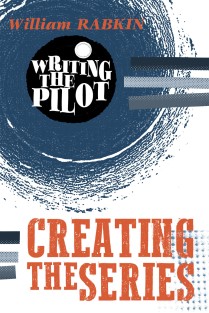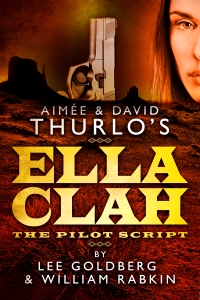When you sit down to start plotting out your pilot, it all looks so clear. Sure, you may have no idea what’s going to happen in act three, and there are plenty of connective pieces that still need to be figured out. But you’ve got your opening, your ending and your midpoint. And most important, you know what your script is about. You know what you want to say, and that’s going to guide everything that happens along the way.
And then you start plotting. And something happens. And the odd thing, it seems like a good thing. You’ve figured out a piece of the plot. What if your protagonist does this? And that one scene breaks open the dam, because if she does this, then he is going to do that, and then they will have to respond by doing something new, and all of a sudden your plot is falling into place.
There’s only one problem: What you’ve come up with has nothing to do with what you set out to write. In fact, it directly undercuts the themes you wanted to explore.
But god damn it, it’s done! And although there must be a way to plot this thing out that expresses the ideas you set out to write about, you can’t get a handle on it at all.
So now you’ve got a choice — write the script you set out to create, or write the one that’s in front of you.
Choice number two isn’t always wrong. Sometimes it’s even better than what you’d originally intended.
But lots of times it is wrong. You’re trading a system of characters and themes you spent days or weeks or months establishing for a plot that just happens to work on its own. And while this will allow you to start writing, your script will be forever compromised, because you’ve traded away its center for a shortcut.
I’ve been thinking about this a lot recently — because I’ve been watching The Bridge. And they’ve fallen into this trap more completely than any first year show I’ve ever seen.
When it started, The Bridge seemed really promising. For once we were getting a single-crime mystery series in which the crime was actually interesting. It wasn’t the murder of a high school student or the disappearance of a pregnant teen or the death of a young boy, so we wouldn’t be spending a quarter of each episode watching the incredibly boring grieving of the victim’s parents. (Realistic, yes; interesting, no.) No, this started out with a body found on a bridge that spanned the border between the US and Mexico — and even better, it turned out to be not one body but parts of two, one American, one Mexican. Weird, creepy, ominous.
And even better, it really promised to be about something. It wasn’t just another in-depth exploration of the minutiae of a police investigation — and haven’t we had enough investigatory minutiae to last a lifetime? This was a show that was going to cross back and forth over the border, even teaming up an American detective with a Mexican one. It really seemed to want to explore issues about the gulf between the two countries and the two cultures. It was going to be cable TV’s answer to Roberto Bolano, only something would happen and finally there would be a solution.
And then they started plotting it…
Now I was never in the writers’ room for this show. For all I know, on the first day the showrunners assembled their staff and said “We know this pilot makes it look like we want to create a smart thriller that explores issues of life on the border, but really we want to make something really disappointing and stupid.” But somehow I doubt that.
I think the showrunners started out plotting based on their themes and characters… but as episodes went by and it got harder and harder, they started plotting based on what they’d already plotted. They let the plot’s twists and turns determine where they’d go next. Without realizing it, they’d abandoned their story logic and started relying on plot logic.
But here’s the problem — your plot is only the vehicle for conveying your themes. And twisting your entire series around to fit it is like tearing down your house because it doesn’t match the light fixture you just bought.
So week after week, The Bridge started following the logic of its plot. And what started out as a fascinating mystery centered on an important cultural issue turned into a ridiculous revenge story with yet another Blofeld-esque supervillain who can go anywhere, do anything, and hack into and control any computer anywhere in the world, because that’s what bad guys can do. The last few episodes have been dreadful — as the plotting has been wallowing in the stupid, the tone and style have remained as ponderous and self-important as they were when the show looked like it might actually be as serious as it took itself.
This past week counted as one of the low points in recent television, as the killer, now with a bomb strapped to his chest, demands that the hero murder another character so that “you will be just like me.”
Which is doubly stupid, because there’s nothing in the villain’s motivation that would make him want the Mexican detective to act like him. It’s just that this scene has worked in other places, so maybe it will work here.
And then when the hour is finally almost over, the American detective takes out the bad guy by… shooting him in the leg. Apparently that’s all it took. I kind of figured the bomb would have been on a dead man switch, so if villain wasn’t pushing the button it would go off. (I was assuming because by this time I’d started fast-forwarding through a lot of the increasingly pompous and ludicrous dialogue.) But nope, no dead man switch. And the entire assembly of SWAT members from two countries massed around couldn’t figure that out.
And it’s still not over. Now the previews are promising that finally the storylines about the widow’s tunnel and the weird werewolf-looking guy are finally going to be connected to the main story.
But for me, anyway, it’s too late. The showrunners gave up on their show. They decided that following plot was more important than following story — or they just found it so much easier to go this way they never realized what they’d lost. And it’s lost forever.
Don’t make the same mistake.


